Bachelor of Science in Nursing (RN to BSN Course)
The Registered Nurse (RN) to Bachelor of Science in Nursing (BSN) program allows Registered Nurses to expand the breadth and depth of their knowledge to advance their professional role as a nurse leader and earn their Bachelor of Science in Nursing.
The program is designed for the working nurse to improve patient outcomes, influence communities with knowledge of evidence-based practice, patient safety, and quality improvement, and can be completed in as little as 4 semesters.
The BSN program offers the flexibility of asynchronous online lectures combined with hands-on clinical training in real health care settings. This hybrid approach allows students to learn theoretical concepts on their own schedule while gaining essential, in-person experience that builds confidence, clinical skills, and professional competence needed to excel as a nurse.
Upon completion of the program, nurses will be prepared for graduate study and be equipped for leadership positions where increasing levels of education are expected. Graduates of the program are also eligible to apply for a California Public Health Nurse certificate, expanding your opportunities to meet global health care needs within diverse communities.
The Baccalaureate Degree in Nursing through the Marsha Fuerst School of Nursing at Glendale Career College is accredited by the Commission on Collegiate Nursing Education (www.ccneaccreditation.org).


Bachelor of Science in Nursing (RN to BSN Course)
Bachelor of Science in Nursing (RN to BSN Course) Overview
The Registered Nurse (RN) to Bachelor of Science in Nursing (BSN) program at the Marsha Fuerst School of Nursing at Glendale Career College is designed for licensed Registered Nurses who want to advance their education and expand their professional opportunities. Building upon the foundation of previous nursing education and clinical experience, this program enhances critical thinking, leadership, and evidence-based practice skills—preparing nurses to deliver higher levels of patient care and take on more complex roles within today’s evolving health care system.
Graduates of an RN to BSN program are well-positioned for leadership and management roles in hospitals, community health organizations, education, and public health settings. Earning a BSN not only strengthens clinical and professional expertise but also opens doors to graduate education and advanced practice roles—empowering nurses to make a lasting impact on the quality of care in their communities.
The Bachelor of Science in Nursing program at Marsha Fuerst School of Nursing at Glendale Career College is accredited by the Accrediting Bureau of Health Education Schools (ABHES).
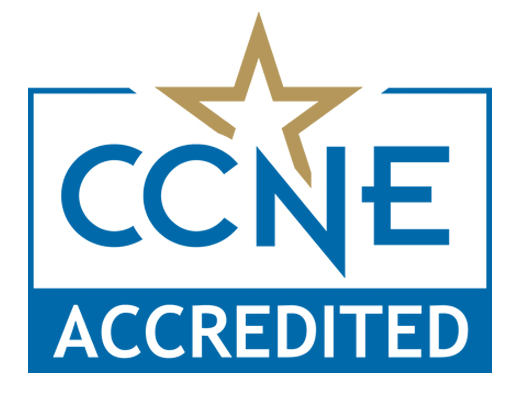
Accredited by the Commission on Collegiate Nursing Education.
The Baccalaureate Degree in Nursing through the Marsha Fuerst School of Nursing at Glendale Career College is accredited by the Commission on Collegiate Nursing Education. (www.ccneaccreditation.org).
The Marsha Fuerst School of Nursing at Glendale Career College, is proudly accredited, licensed to operate and/or recognized by the following institutions:
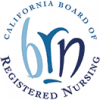
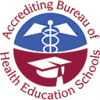

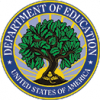
Job Growth Outlook
The U.S. Bureau of Labor Statistics anticipates the need for more than 438,000 new Registered Nurses nationwide over the next 10 years as employment of Registered Nurses is projected to grow 15 percent from 2016 to 2026, much faster than the average for all occupations. Generally, registered nurses with a Bachelor of Science degree in nursing (BSN) will have better job prospects than those without one.*
*Bureau of Labor Statistics, U.S. Department of Labor, Occupational Outlook Handbook, Registered Nurses, on the Internet at https://www.bls.gov/ooh/healthcare/registered-nurses.htm (visited June 2020). For the latest national information, please visit U.S. Bureau of Labor Statistics.
Marsha Fuerst School of Nursing cannot guarantee employment.
Start earning your BSN now through the Marsha Fuerst School of Nursing at Glendale Career College
We are currently accepting applications for our next BSN class.
The RN-BSN program is available through the Marsha Fuerst School of Nursing at Glendale Career College.
Learn more about our different Marsha Fuerst School of Nursing locations using the links below.
Call or apply now to get started!
Questions?
Let us help you launch your career by contacting us today. Simply fill out our contact form or call us at 800-639-3384.
Classes are starting soon!
Registered Nursing (RN to BSN) Careers & Work Environment
Nurses with a Bachelor of Science in Nursing (BSN) work in a wide variety of professional health care settings. They serve in hospitals, clinics, community health centers, schools, long-term care facilities, and public health organizations—often taking on leadership, education, or specialized clinical roles. BSN-prepared nurses are valued for their advanced knowledge, critical thinking skills, and ability to coordinate complex patient care. Their work environment is fast-paced, collaborative, and centered on improving patient outcomes across diverse populations.
Here are some of the different places where nurses with a BSN degree can work, covering both traditional and specialized settings:

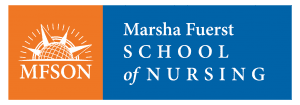
Quick Facts for BSN-Prepared Nurses
Bachelor of Science in Nursing Course Material
The Bachelor of Science in Nursing program is a post-licensure RN to BSN program for nurses who already possess an associate’s degree. Upon completion of the Bachelor of Science in Nursing (BSN) program, the graduates will: Utilize critical thinking to synthesize knowledge derived from nursing, design competent, patient centered professional nursing care for individuals, families and populations across the health continuum in a variety of community based settings and institutions, emphasizing patient safety and quality. After successful completion of the program, nurse generalists will be able to function as providers, designers, leaders, managers, and coordinators of care as well as accountable members of the nursing profession and to pursue graduate level education.
English Literature
The main purpose of English 300 is to introduce the college student to masterpieces in English literature, drawing from the Norton Anthology of Major Authors. We will explore, analyze, discuss, and reflect upon classic English literature, as well as debate that has persisted for more than 2000 years among philosophers, writers, and critics over the following kinds of questions: What is the nature, function, and value of literature? How can we deal objectively with literary art? How can readers gain greater access to the richness and complexity of literary texts? What criteria do we use to determine a work’s “greatness”? What do we mean when we speak of the “beauty” of a literary work? What is the function of the artist, the critic, and of criticism and theory itself? Can we know the artist’s true intentions in a work? How do we account for multiple interpretations of a text? What is the relationship between the content and the form of a literary work? Does literary language differ from ordinary language?
Psychopathology
This course will provide an in depth review of a broad spectrum of psychopathological conditions as defined in the DSM-V. The focus of this review will include the signs & symptoms, and criteria for differential diagnosis. The emphasis of this review will be on comparing and contrasting different theoretical perspectives on each disorder, as well as reviewing the empirical literature in support of these theoretical perspectives. The scientific bases of contemporary theories and research of major psychological disorders will be studied, and the societal implications of mental disorders will be explored.
Cultural Diversity
The course examines the origins of cultural pluralism in the United States emphasizing the evolution of autonomous, interdependent societies coexisting both separately and interdependently. The history of discrimination is reviewed considering diversities of race, ethnicity, gender, disability, socioeconomic status, religion, and sexual preference with reflection on progress toward a more equitable society. Outside preparation and study time, in addition to regular classroom activities, is required to complete the class assignments. The type of outside preparation may take the form of homework assignments, projects, reading, and required studying.
Critical Thinking
The course teaches the student how to think about societal issues more carefully, more objectively, and more analytically, a critical skill for health professionals or anyone who wants to make more informed and healthier choices for themselves or their families. Research into how our mind works has found that we reach conclusions based on subconscious mental shortcuts and emotional and instinctive cues rather than from careful conscious fact-based reasoning. As a result, our views may feel right, but sometimes they do not match the evidence. That can create problems for us as individuals, and for society. This course is about how to understand and fight back against the built-in subconscious obstacles that impair more careful critical thinking. You will be asked to approach issues on behalf of a public looking to you for objectivity and ‘the truth’. Written expression and analysis of ideas, arguments and issues in the health sciences will be emphasized. Instruction in critical thinking, inductive and deductive reasoning, and the scientific method will occur, with a particular emphasis on compositional expression necessary in developing a complex scientific argument; therefore, this will be an interdisciplinary course.
Pathophysiology
This course is focused on the pathophysiological basis for alterations in health. Examples and theories of disease causation and treatment therapies will be explored. The major objective of this course is to provide an examination of the altered physiological processes manifested in human diseases. By understanding these examples and situations, students will be better able to understand the pathophysiological processes involved in human disease and implementation of therapeutic clinical treatment.
Health Assessment in Nursing
This course is designed to help the student refine the physical assessment techniques of patients across the entire lifespan. In addition the student will refine the physical assessment techniques of the pregnant patient and their unborn child. Assessment of the patient history, mental, and neurological status will also be covered. In addition the student will learn to assess for violence. Finally this course will help the student refine their interview techniques to be able to assess for emotional, social, and cultural health.
Nursing Research Methodology
This course introduces the student to nursing research methodology concepts and their application. Both quantitative and qualitative research methods will be covered. In addition the student will be introduced to posing a research question, formulating a hypothesis, and stating a research problem. The student will also learn about theoretical frameworks, literature review, data collection and data testing. Finally this course will culminate in the production of a formal research study conducted and presented in written format by the student.
Leadership in Nursing
This course is designed to prepare the student or licensed nurse to transition from the role of clinician to manager. It will help the student develop the critical decision-making skills required to be an effective nurse leader in healthcare organizations. All four functions of management will be covered as they relate specifically to nursing leadership roles. Students enrolled in this course will gain the ability to effectively explain the difference between leadership and management. They will also be more prepared to function along the entire management – leadership continuum.
Introduction to Biostatistics
This course provides Introduction to Biostatistics provides an introduction to selected important topics in biostatistical concepts and reasoning. This course represents a variety of statistical techniques. These techniques include but are not limited to: data collection, sampling principles, and graphical techniques for data display necessary for appropriate analysis and interpretation of data relevant to health sciences. Statistical concepts will be presented and enhanced through the use of numerous “real life” data sets and case studies.
Introduction to Public Health
This course introduces Theories and concepts from nursing and public health are presented from a bio-psycho-social perspective to the senior level student. The focus is on the health of the population, as well as, individuals, families, and groups living in the community. The Watson Model of Caring is threaded through the broad topics, which include Community-Oriented Practice, Family, Community Assessment, Epidemiology, and Communicable Disease.
Nursing Roles and Issues
This course prepares the student to deal with contemporary issues facing the nursing profession. It covers issues such as the growth of the profession, credentialing, healthcare employment, legal, safety, bioethics, political processes, research and technology, as they relate to the nursing and nursing roles in healthcare organizations. This course will also explore nurses in the leadership role and help the student develop their ability to effectively work with and respect other healthcare workers.
Disaster Management
This course prepares the student to deal with Independent investigation of significant problems in nursing. This course evaluates disaster preparedness and bioterrorism related to the nurse’s role.
Bachelor of Science in Nursing Course Activities
Nurses with a Bachelor of Science in Nursing (BSN) provide and coordinate patient care while applying advanced knowledge in leadership, communication, and evidence-based practice. They play key roles in improving patient outcomes, educating patients and families, and guiding health care teams across a variety of clinical and community settings.

Clinical Training
During the course of the program, students will participate in hands-on clinical training in real health care settings, providing the opportunity to apply what they’ve learned in the classroom to real-world patient care.
Health Assessment in Nursing
Conduct comprehensive patient assessments, including health histories, vital signs, and physical examinations across body systems.
Practice critical thinking and clinical judgment by identifying normal and abnormal findings and documenting accurate assessment data.
Develop communication and interpersonal skills while interacting with patients to gather health information and build therapeutic relationships.
Leadership in Nursing
Collaborate with nurse leaders and interprofessional teams to understand management roles, decision-making processes, and effective communication in health care settings.
Assist in coordinating patient care activities, prioritizing tasks, delegating responsibilities, and promoting teamwork and quality improvement.
Public Health
Participate in community health outreach, such as health screenings, vaccination clinics, or educational programs promoting wellness and disease prevention.
Provide patient education and advocacy, helping individuals and families understand health resources, preventive care, and healthy lifestyle practices.
Questions?
Let us help you launch your career by contacting us today. Simply fill out the form below or call us at
1-800-639-3384
Classes are starting soon!
Start earning your BSN now through the Marsha Fuerst School of Nursing at Glendale Career College
We are currently accepting applications for our next class. Call or apply now to get started!
Request Information
Fill out a short form online and one of our admissions representatives will contact you to answer any questions you have.
Apply Online Now!
Ready to make your decision now? You can apply now online in under a few minutes.
Schedule a Tour
Come and see us in person! Talk to your future instructors, meet your future classmates and get familiar with your new home.
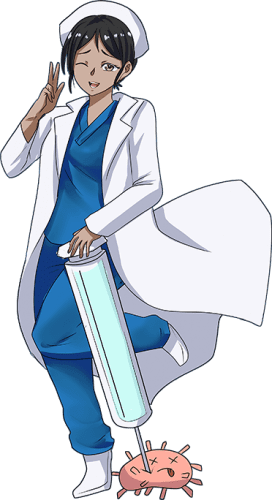
Bachelor of Science in Nursing (RN to BSN Course) Overview
The Registered Nurse (RN) to Bachelor of Science in Nursing (BSN) program at the Marsha Fuerst School of Nursing at Glendale Career College is designed for licensed Registered Nurses who want to advance their education and expand their professional opportunities. Building upon the foundation of previous nursing education and clinical experience, this program enhances critical thinking, leadership, and evidence-based practice skills—preparing nurses to deliver higher levels of patient care and take on more complex roles within today’s evolving health care system.
Graduates of an RN to BSN program are well-positioned for leadership and management roles in hospitals, community health organizations, education, and public health settings. Earning a BSN not only strengthens clinical and professional expertise but also opens doors to graduate education and advanced practice roles—empowering nurses to make a lasting impact on the quality of care in their communities.
The Bachelor of Science in Nursing program at Marsha Fuerst School of Nursing at Glendale Career College is accredited by the Accrediting Bureau of Health Education Schools (ABHES).

Accredited by the Commission on Collegiate Nursing Education.
The Baccalaureate Degree in Nursing through the Marsha Fuerst School of Nursing at Glendale Career College is accredited by the Commission on Collegiate Nursing Education. (www.ccneaccreditation.org).
The Marsha Fuerst School of Nursing at Glendale Career College, is proudly accredited, licensed to operate and/or recognized by the following institutions:




The College cannot guarantee employment.
Start earning your BSN now through the Marsha Fuerst School of Nursing at Glendale Career College
We are currently accepting applications for our next BSN class.
The RN-BSN program is available through the Marsha Fuerst School of Nursing at Glendale Career College.
Learn more about our different Marsha Fuerst School of Nursing locations using the links below.
Call or apply now to get started!
Questions?
Let us help you launch your career by contacting us today. Simply fill out our contact form or call us at 800-639-3384.
Classes are starting soon!
Registered Nursing (RN to BSN) Careers & Work Environment
Nurses with a Bachelor of Science in Nursing (BSN) work in a wide variety of professional health care settings. They serve in hospitals, clinics, community health centers, schools, long-term care facilities, and public health organizations—often taking on leadership, education, or specialized clinical roles. BSN-prepared nurses are valued for their advanced knowledge, critical thinking skills, and ability to coordinate complex patient care. Their work environment is fast-paced, collaborative, and centered on improving patient outcomes across diverse populations.
Here are some of the different places where nurses with a BSN degree can work, covering both traditional and specialized settings:


Quick Facts for BSN-Prepared Nurses
Bachelor of Science in Nursing Course Material
The Bachelor of Science in Nursing program at the Marsha Fuerst School of Nursing at Glendale Career College is a post-licensure RN to BSN program for nurses who already possess an associate’s degree.
The BSN program combines the flexibility of asynchronous learning through online lectures with hands-on clinical training in real health care settings.
English Literature
The main purpose of English 300 is to introduce the college student to masterpieces in English literature, drawing from the Norton Anthology of Major Authors. We will explore, analyze, discuss, and reflect upon classic English literature, as well as debate that has persisted for more than 2000 years among philosophers, writers, and critics over the following kinds of questions: What is the nature, function, and value of literature? How can we deal objectively with literary art? How can readers gain greater access to the richness and complexity of literary texts? What criteria do we use to determine a work’s “greatness”? What do we mean when we speak of the “beauty” of a literary work? What is the function of the artist, the critic, and of criticism and theory itself? Can we know the artist’s true intentions in a work? How do we account for multiple interpretations of a text? What is the relationship between the content and the form of a literary work? Does literary language differ from ordinary language?
Psychopathology
This course will provide an in depth review of a broad spectrum of psychopathological conditions as defined in the DSM-V. The focus of this review will include the signs & symptoms, and criteria for differential diagnosis. The emphasis of this review will be on comparing and contrasting different theoretical perspectives on each disorder, as well as reviewing the empirical literature in support of these theoretical perspectives. The scientific bases of contemporary theories and research of major psychological disorders will be studied, and the societal implications of mental disorders will be explored.
Cultural Diversity
The course examines the origins of cultural pluralism in the United States emphasizing the evolution of autonomous, interdependent societies coexisting both separately and interdependently. The history of discrimination is reviewed considering diversities of race, ethnicity, gender, disability, socioeconomic status, religion, and sexual preference with reflection on progress toward a more equitable society. Outside preparation and study time, in addition to regular classroom activities, is required to complete the class assignments. The type of outside preparation may take the form of homework assignments, projects, reading, and required studying.
Pathophysiology
This course is focused on the pathophysiological basis for alterations in health. Examples and theories of disease causation and treatment therapies will be explored. The major objective of this course is to provide an examination of the altered physiological processes manifested in human diseases. By understanding these examples and situations, students will be better able to understand the pathophysiological processes involved in human disease and implementation of therapeutic clinical treatment.
Health Assessment in Nursing
This course is designed to help the student refine the physical assessment techniques of patients across the entire lifespan. In addition, the student will refine the physical assessment techniques of the pregnant patient and their unborn child. Assessment of the patient history, mental, and neurological status will also be covered. In addition, the student will learn to assess for violence. Finally, this course will help the student refine their interview techniques to be able to assess for emotional, social, and cultural health.
Nursing Research
This course introduces the student to nursing research methodology concepts and their application. Both quantitative and qualitative research methods will be covered. In addition, the student will be introduced to posing a research question, formulating a hypothesis, and stating a research problem. The student will also learn about theoretical frameworks, literature review, data collection and data testing. Finally, this course will culminate in the production of a formal research study conducted and presented in written format by the student.
Introduction to Nursing Informatics
Information technology plays an important role in education and nursing care for quality outcomes and quality of healthcare. This course is closely aligned with the 2008 American Association of Colleges of Nursing’s (AACN) The Baccalaureate Education for Professional Nursing Practice Essential IV: Information Management and Application of Patient Care Technology.
Leadership in Nursing
This course is designed to prepare the student or licensed nurse to transition from the role of clinician to manager. It will help the student develop the critical decision-making skills required to be an effective nurse leader in healthcare organizations. All four functions of management will be covered as they relate specifically to nursing leadership roles. Students enrolled in this course will gain the ability to effectively explain the difference between leadership and management. They will also be more prepared to function along the entire management – leadership continuum.
Healthcare Policy
This course delves into the impact of politics, organizations, and resources on high-quality, cost-effective health care. Students will participate in a critical analysis of current legislative issues, economic constraints, and political debates that influence emerging trends in nursing practice and healthcare systems. The course will evaluate the implications of policy and economics on topics such as access, equity, affordability, health disparities, and social justice within healthcare.
Biostatistics
This course provides Introduction to Biostatistics provides an introduction to selected important topics in biostatistical concepts and reasoning. This course represents a variety of statistical techniques. These techniques include but are not limited to: data collection, sampling principles, and graphical techniques for data display necessary for appropriate analysis and interpretation of data relevant to health sciences. Statistical concepts will be presented and enhanced through the use of numerous “real life” data sets and case studies.
Introduction to Public Health
This course introduces Theories and concepts from nursing and public health, and are presented from a bio-psycho-social perspective to the senior level student. The focus is on the health of the population, as well as, individuals, families, and groups living in the community. Theories from nursing, public health, and social and behavioral sciences are utilized to provide culturally competent nursing care to populations or to individuals, families and groups within the context of that population. Primary prevention strategies for populations at risk are emphasized to promote and protect health, and prevent disease across the life span.
Nursing Roles and Issues
This course prepares the student to deal with contemporary issues facing the nursing profession. It covers issues such as the growth of the profession, credentialing, healthcare employment, legal, safety, bioethics, political processes, research and technology, as they relate to the nursing and nursing roles in healthcare organizations. This course will also explore nurses in the leadership role and help the student develop their ability to effectively work with and respect other healthcare workers.
Bachelor of Science in Nursing Course Activities
Nurses with a Bachelor of Science in Nursing (BSN) provide and coordinate patient care while applying advanced knowledge in leadership, communication, and evidence-based practice. They play key roles in improving patient outcomes, educating patients and families, and guiding health care teams across a variety of clinical and community settings.

Clinical Training
During the course of the program, students will participate in hands-on clinical training in real health care settings, providing the opportunity to apply what they’ve learned in the classroom to real-world patient care.
Health Assessment in Nursing
Conduct comprehensive patient assessments, including health histories, vital signs, and physical examinations across body systems.
Practice critical thinking and clinical judgment by identifying normal and abnormal findings and documenting accurate assessment data.
Develop communication and interpersonal skills while interacting with patients to gather health information and build therapeutic relationships.
Leadership in Nursing
Collaborate with nurse leaders and interprofessional teams to understand management roles, decision-making processes, and effective communication in health care settings.
Assist in coordinating patient care activities, prioritizing tasks, delegating responsibilities, and promoting teamwork and quality improvement.
Public Health
Participate in community health outreach, such as health screenings, vaccination clinics, or educational programs promoting wellness and disease prevention.
Provide patient education and advocacy, helping individuals and families understand health resources, preventive care, and healthy lifestyle practices.
Questions?
Let us help you launch your career by contacting us today. Simply fill out the form below or call us at
1-800-639-3384
Classes are starting soon!
